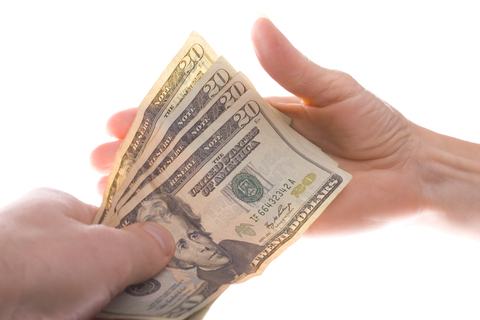Money could help some smokers stub out their cigarettes for good, according to a story by Steven Reinberg for HealthDay citing the findings of a new study.
Swiss researchers were said to have found that among hundreds of financially poor smokers, continued payments helped more than one third of them quit smoking for six months.
“In relatively low-income smokers who did not receive face-to-face counseling or medications, large financial incentives increase long-term smoking cessation rates,” said lead researcher Jean-Francois Etter, a professor of public health at the Institute of Global Health of the University of Geneva.
Three months after the pay-to-quit program started, 44 percent of smokers who received money said they had been abstinent continuously, compared with six percent of those not paid, the researchers found.
Even after incentive payments stopped at six months, those paid to quit were more likely to stay off cigarettes.
At six months, 36 percent of the paid group still hadn’t smoked, compared with six percent of the others. At 18 months, 10 percent who had received money still weren’t smoking versus four percent of those who weren’t paid, the researchers found.
Given these findings, “large financial incentives should be further used and tested in studies aimed at documenting the health care costs across a wide array of socioeconomic groups,” Etter said.
The study involved 805 low-income smokers who wanted to quit smoking. They were randomly assigned to receive no pay or payments that increased incrementally for confirmed abstinence.
On average, participants had an annual income of about $20,000 and smoked about 16 cigarettes a day. Forty-three percent were students and 19 percent were unemployed. Whether these incentives would work for those financially better-off isn’t known.
The full story is at: https://consumer.healthday.com/cancer-information-5/smoking-cessation-news-628/paying-smokers-to-quit-appears-to-pay-off-713902.html.








